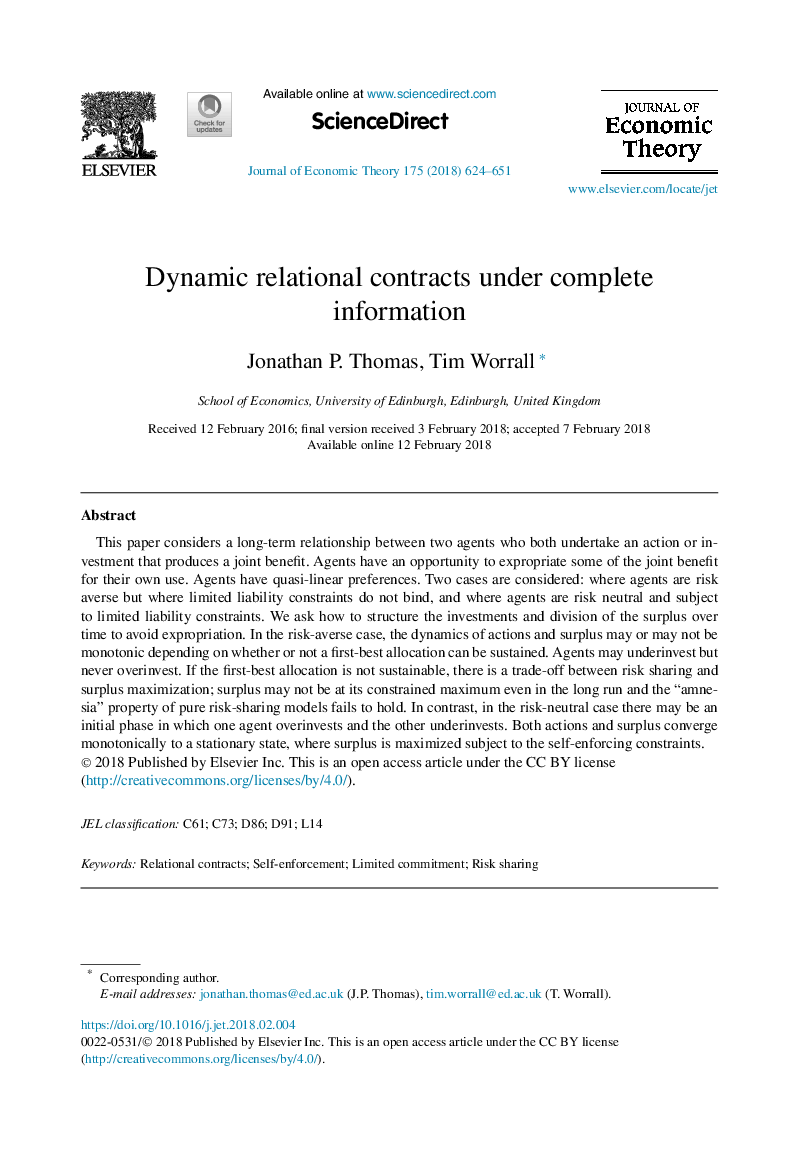| Article ID | Journal | Published Year | Pages | File Type |
|---|---|---|---|---|
| 7359231 | Journal of Economic Theory | 2018 | 28 Pages |
Abstract
This paper considers a long-term relationship between two agents who both undertake an action or investment that produces a joint benefit. Agents have an opportunity to expropriate some of the joint benefit for their own use. Agents have quasi-linear preferences. Two cases are considered: where agents are risk averse but where limited liability constraints do not bind, and where agents are risk neutral and subject to limited liability constraints. We ask how to structure the investments and division of the surplus over time to avoid expropriation. In the risk-averse case, the dynamics of actions and surplus may or may not be monotonic depending on whether or not a first-best allocation can be sustained. Agents may underinvest but never overinvest. If the first-best allocation is not sustainable, there is a trade-off between risk sharing and surplus maximization; surplus may not be at its constrained maximum even in the long run and the “amnesia” property of pure risk-sharing models fails to hold. In contrast, in the risk-neutral case there may be an initial phase in which one agent overinvests and the other underinvests. Both actions and surplus converge monotonically to a stationary state, where surplus is maximized subject to the self-enforcing constraints.
Related Topics
Social Sciences and Humanities
Economics, Econometrics and Finance
Economics and Econometrics
Authors
Jonathan P. Thomas, Tim Worrall,
